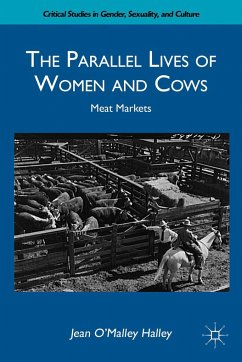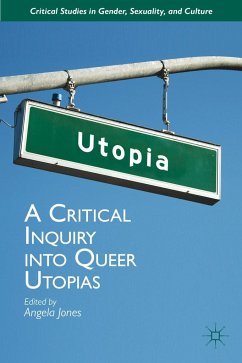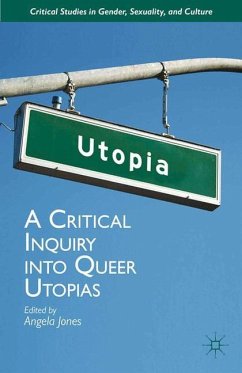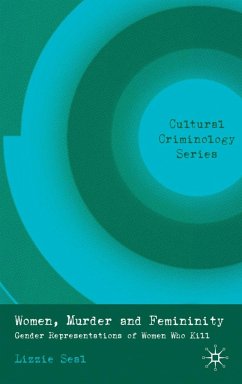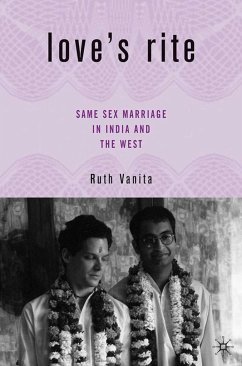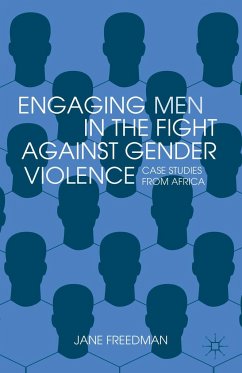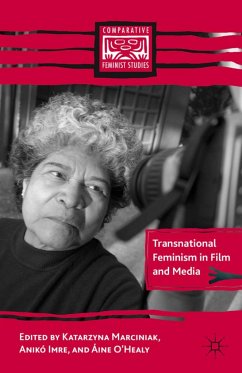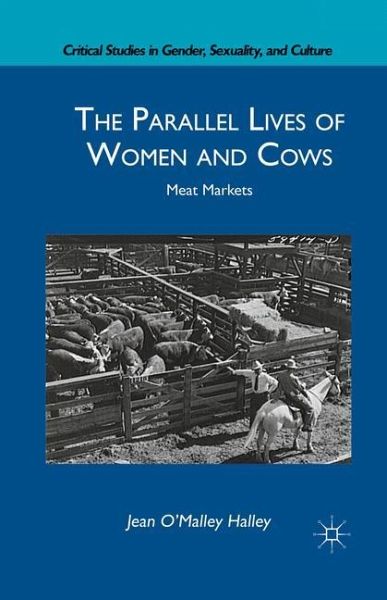
Versandkostenfrei!
Versandfertig in 6-10 Tagen
Weitere Ausgaben:

PAYBACK Punkte
31 °P sammeln!





Weaving together a social history of the American beef industry with her own account of growing up in the shadow of her grandfather's cattle business, Halley juxtaposes the two worlds and creates a link between the meat industry and her own experience of the formation of gender and sexuality through family violence.
JEAN O'MALLEY HALLEY is an Associate Professor of Sociology in the Departments of Sociology and Anthropology at Wagner College, USA.
Produktdetails
- Critical Studies in Gender, Sexuality, and Culture
- Verlag: Palgrave Macmillan / Palgrave Macmillan US / Springer Palgrave Macmillan
- Artikelnr. des Verlages: 978-1-349-29651-4
- 1st ed. 2012
- Seitenzahl: 204
- Erscheinungstermin: 31. Oktober 2012
- Englisch
- Abmessung: 216mm x 140mm x 12mm
- Gewicht: 263g
- ISBN-13: 9781349296514
- ISBN-10: 1349296511
- Artikelnr.: 45080696
Herstellerkennzeichnung
Palgrave Macmillan
Tiergartenstr. 17
69121 Heidelberg
ProductSafety@springernature.com
"When we say that a woman is treated like a 'piece of meat,' what do we really mean? Jean Halley explores the intersection between violence against women and violence against animals. First, Halley ruminates on the myriad ways that cruelty and trauma permeate the lives of women and girls, using her own story as a living example. She shares aching, shocking personal memories of growing up white and, for a time, poor in a rural town where violence was not only tolerated, it was expected and alternately ignored or covered over. Second, Halley provides an overview of the American meat industry, offering an unusual history and analysis of a form of violence that is invisible to most of us, even while we are complicit in its perpetuation. This
Mehr anzeigen
book is a brilliant meditation on the normalization of violence in American life." - Leora Tanenbaum, author of Slut! Growing Up Female with a Bad Reputation
'This book is a tour de force combining high theory, experimental writing, feminist materialism, biopower, the meat industry, family stories, trauma, love, pain, the loss of innocence, and betrayal in a tarnished and violent postmodern west that has lost its way. Performative social science moves into uncharted spaces with this brilliant work, a new starting place for all of us!' - Norman K. Denzin, College of Communications Scholar, University of Illinois at Urbana-Illinois
"Halley's unconventional book offers a well-researched history of cows in America, as both symbolic and real markers of capitalist expansion. Through the parallel stories of her family's rise in the cattle ranching business and the everyday violence in her household, Halley unravels the myth of American progress and exposes the vulnerable human and animal subjects beneath it. In her quest to give voice to the cruelties that are normalized in both the domestic and industrial spheres, Halley has written a shocking, courageous and elegant piece of social history." - Grace Cho, associate professor of Sociology, Anthropology and Social Work at CUNY College of Staten Island
"Harrowingly honest and beautifully written, Jean Halley's The Parallel Lives of Women and Cows persuasively shows the links between violence against human and nonhuman animals and intimates that we will not begin to seriously address the first until we are willing to confront our complicity in the latter." - Timothy Pachirat, author of Every Twelve Seconds: Industrialized Slaughter and the Politics of Sight
'This book is a tour de force combining high theory, experimental writing, feminist materialism, biopower, the meat industry, family stories, trauma, love, pain, the loss of innocence, and betrayal in a tarnished and violent postmodern west that has lost its way. Performative social science moves into uncharted spaces with this brilliant work, a new starting place for all of us!' - Norman K. Denzin, College of Communications Scholar, University of Illinois at Urbana-Illinois
"Halley's unconventional book offers a well-researched history of cows in America, as both symbolic and real markers of capitalist expansion. Through the parallel stories of her family's rise in the cattle ranching business and the everyday violence in her household, Halley unravels the myth of American progress and exposes the vulnerable human and animal subjects beneath it. In her quest to give voice to the cruelties that are normalized in both the domestic and industrial spheres, Halley has written a shocking, courageous and elegant piece of social history." - Grace Cho, associate professor of Sociology, Anthropology and Social Work at CUNY College of Staten Island
"Harrowingly honest and beautifully written, Jean Halley's The Parallel Lives of Women and Cows persuasively shows the links between violence against human and nonhuman animals and intimates that we will not begin to seriously address the first until we are willing to confront our complicity in the latter." - Timothy Pachirat, author of Every Twelve Seconds: Industrialized Slaughter and the Politics of Sight
Schließen
Für dieses Produkt wurde noch keine Bewertung abgegeben. Wir würden uns sehr freuen, wenn du die erste Bewertung schreibst!
Eine Bewertung schreiben
Eine Bewertung schreiben
Andere Kunden interessierten sich für




